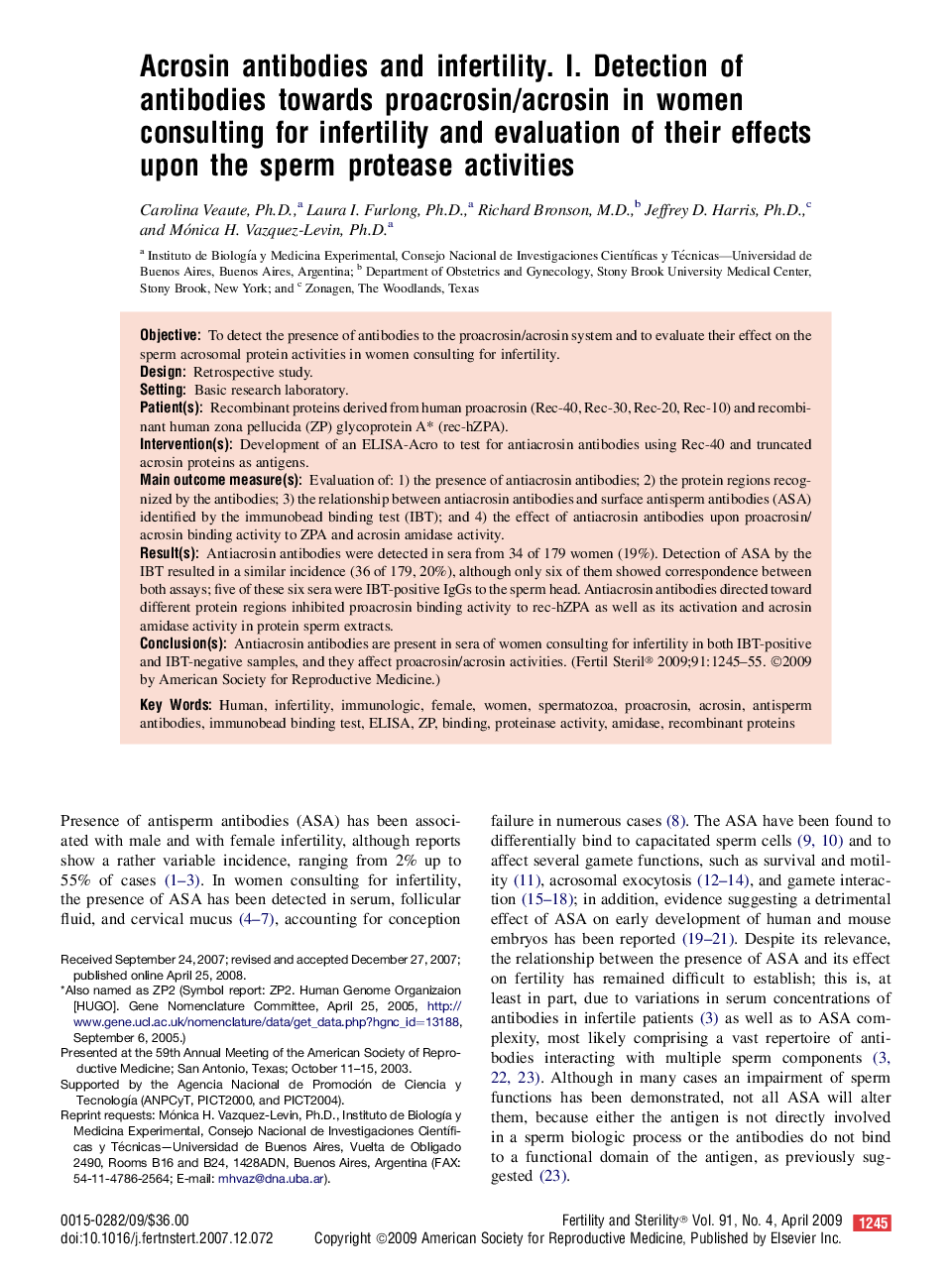| Article ID | Journal | Published Year | Pages | File Type |
|---|---|---|---|---|
| 3941335 | Fertility and Sterility | 2009 | 11 Pages |
ObjectiveTo detect the presence of antibodies to the proacrosin/acrosin system and to evaluate their effect on the sperm acrosomal protein activities in women consulting for infertility.DesignRetrospective study.SettingBasic research laboratory.Patient(s)Recombinant proteins derived from human proacrosin (Rec-40, Rec-30, Rec-20, Rec-10) and recombinant human zona pellucida (ZP) glycoprotein A∗ (rec-hZPA).Intervention(s)Development of an ELISA-Acro to test for antiacrosin antibodies using Rec-40 and truncated acrosin proteins as antigens.Main outcome measure(s)Evaluation of: 1) the presence of antiacrosin antibodies; 2) the protein regions recognized by the antibodies; 3) the relationship between antiacrosin antibodies and surface antisperm antibodies (ASA) identified by the immunobead binding test (IBT); and 4) the effect of antiacrosin antibodies upon proacrosin/acrosin binding activity to ZPA and acrosin amidase activity.Result(s)Antiacrosin antibodies were detected in sera from 34 of 179 women (19%). Detection of ASA by the IBT resulted in a similar incidence (36 of 179, 20%), although only six of them showed correspondence between both assays; five of these six sera were IBT-positive IgGs to the sperm head. Antiacrosin antibodies directed toward different protein regions inhibited proacrosin binding activity to rec-hZPA as well as its activation and acrosin amidase activity in protein sperm extracts.Conclusion(s)Antiacrosin antibodies are present in sera of women consulting for infertility in both IBT-positive and IBT-negative samples, and they affect proacrosin/acrosin activities.
